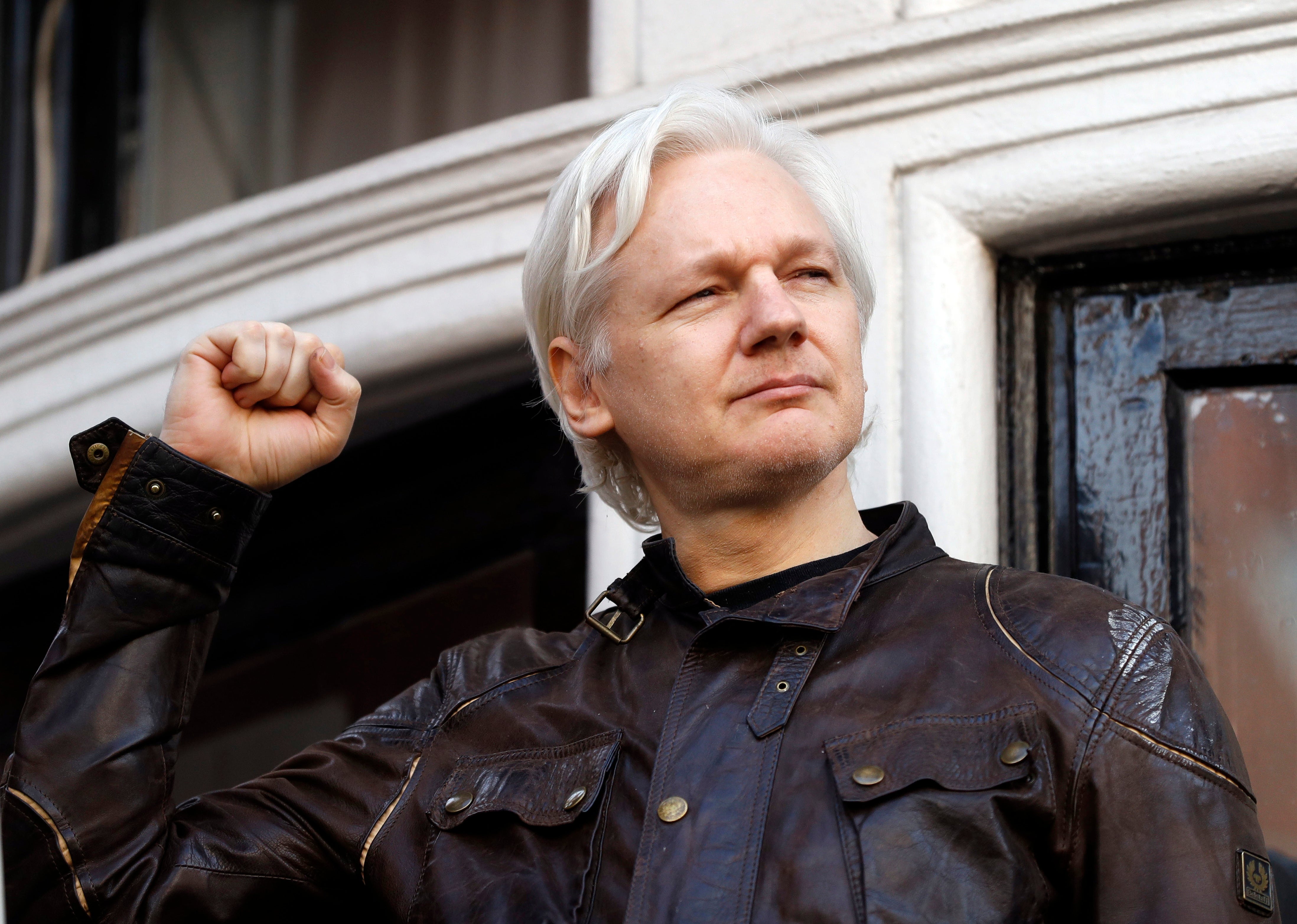US government wins right to expand its appeal for Julian Assange’s extradition
Assange would be able to “resist suicide” if extradited, US argues

Your support helps us to tell the story
From reproductive rights to climate change to Big Tech, The Independent is on the ground when the story is developing. Whether it's investigating the financials of Elon Musk's pro-Trump PAC or producing our latest documentary, 'The A Word', which shines a light on the American women fighting for reproductive rights, we know how important it is to parse out the facts from the messaging.
At such a critical moment in US history, we need reporters on the ground. Your donation allows us to keep sending journalists to speak to both sides of the story.
The Independent is trusted by Americans across the entire political spectrum. And unlike many other quality news outlets, we choose not to lock Americans out of our reporting and analysis with paywalls. We believe quality journalism should be available to everyone, paid for by those who can afford it.
Your support makes all the difference.The US has been allowed to expand its appeal against a judge’s ban on extraditing Julian Assange.
Representatives argued that Mr Assange would be able to “resist suicide” in a US prison.
District Judge Vanessa Baraitser ruled last year that there was a real risk of suicide but the US is applying to have the medical evidence of neuropsychiatry expert Michael Kopelman dismissed or considered less important.
Professor Kopelman, of King’s College London, had concluded that Mr Assange had autism, recurring depression and was at high risk of suicide if extradited.
On Wednesday, Lord Justice Holroyde granted the US permission to challenge Judge Baraitser’s decision on the basis that she had attached too much weight to the evidence of Professor Kopelman.
He said it was “very unusual” for an appeal court to have to consider the evidence of an expert who had been found to have “misled” the court and added that it was “at least arguable” that the judge erred in basing her conclusions on the professor’s evidence.
Washington will now make its full appeal in October.
For the US, Clair Dobbin QC told the High Court in London that there is a “need for anxious scrutiny” of Mr Assange’s reported mental health.
She added: “It really requires a mental illness of a type that the ability to resist suicide has been lost. Part of the appeal will be that Mr Assange did not have a mental illness that came close to being of that nature and degree.”
Ms Dobbin argued that the professor had misled Judge Baraitser by “concealing” the fact that Mr Assange had fathered two children during his time at the embassy until March last year when he, “chose to deploy that information in support of his bail application”.
On the steps of the High Court, Julian Assange’s partner Stella Morris, who has two children by him, said he was, “an innocent man accused of practising journalism”.
Mr Assange is wanted in the US on allegations of a conspiracy to obtain and disclose national defence information. The WikiLeaks founder published hundreds of thousands of leaked documents on his website that related to the Afghanistan and Iraq wars.
Ms Morris told his supporters: “[The US Government] is exploiting the inherently unfair extradition arrangements with this country in order to arbitrarily prolong his imprisonment.”
Former Labour leader Jeremy Corbyn, who was also outside the High Court, said the US government and opponents of Mr Assange should “wind their necks in” and allow him to go free.
Mr Corbyn described Mr Assange as a reporter, “in the tradition of fearless journalism”, who had highlighted, “a truth that was embarrassing to the US”.
Mr Assange is being held in London’s HMP Belmarsh.
Join our commenting forum
Join thought-provoking conversations, follow other Independent readers and see their replies
Comments